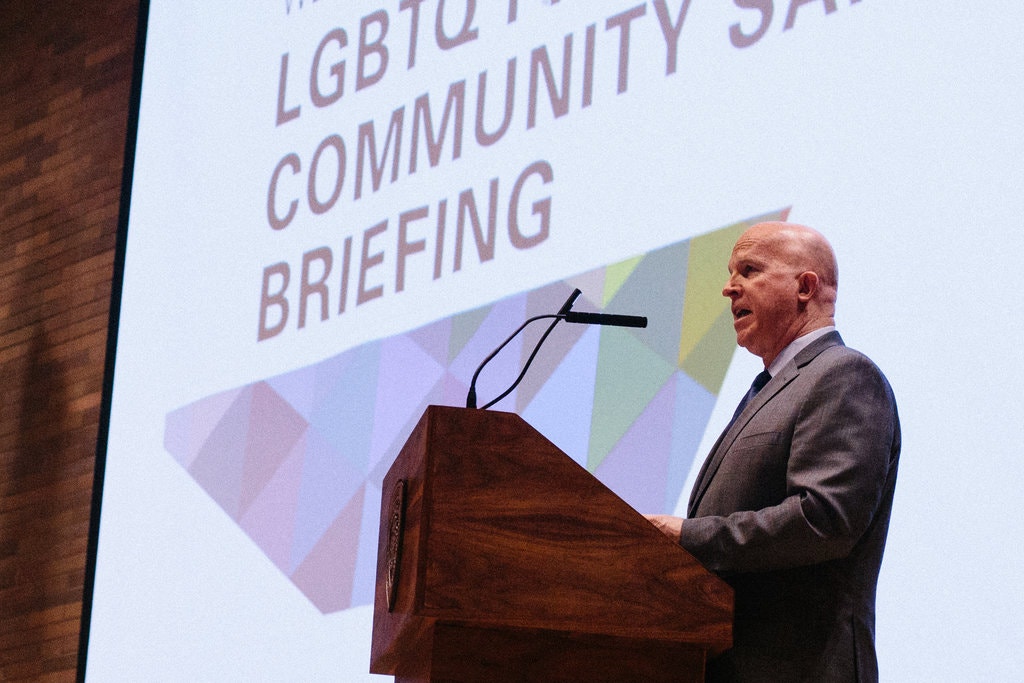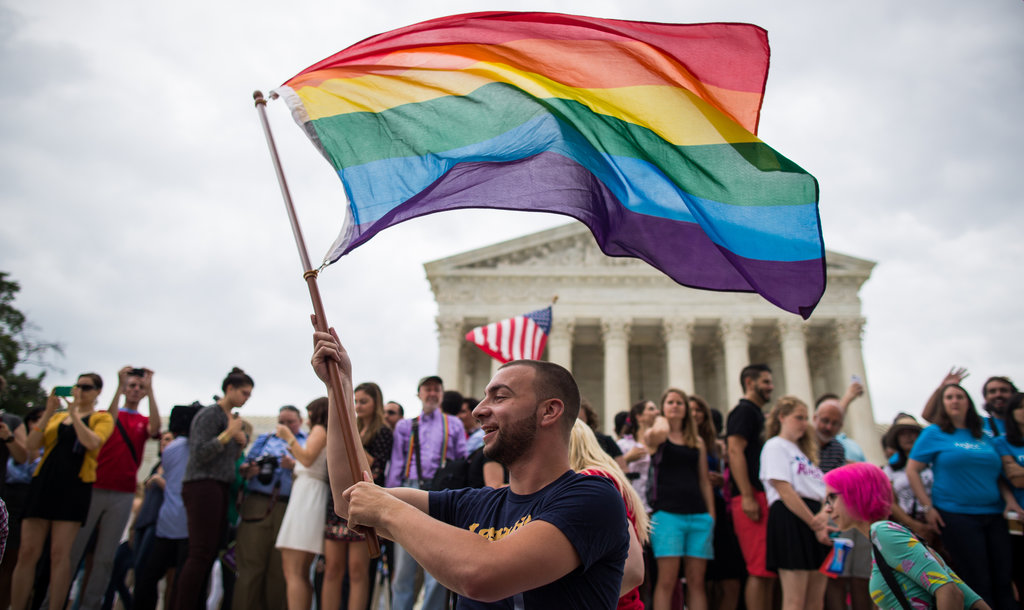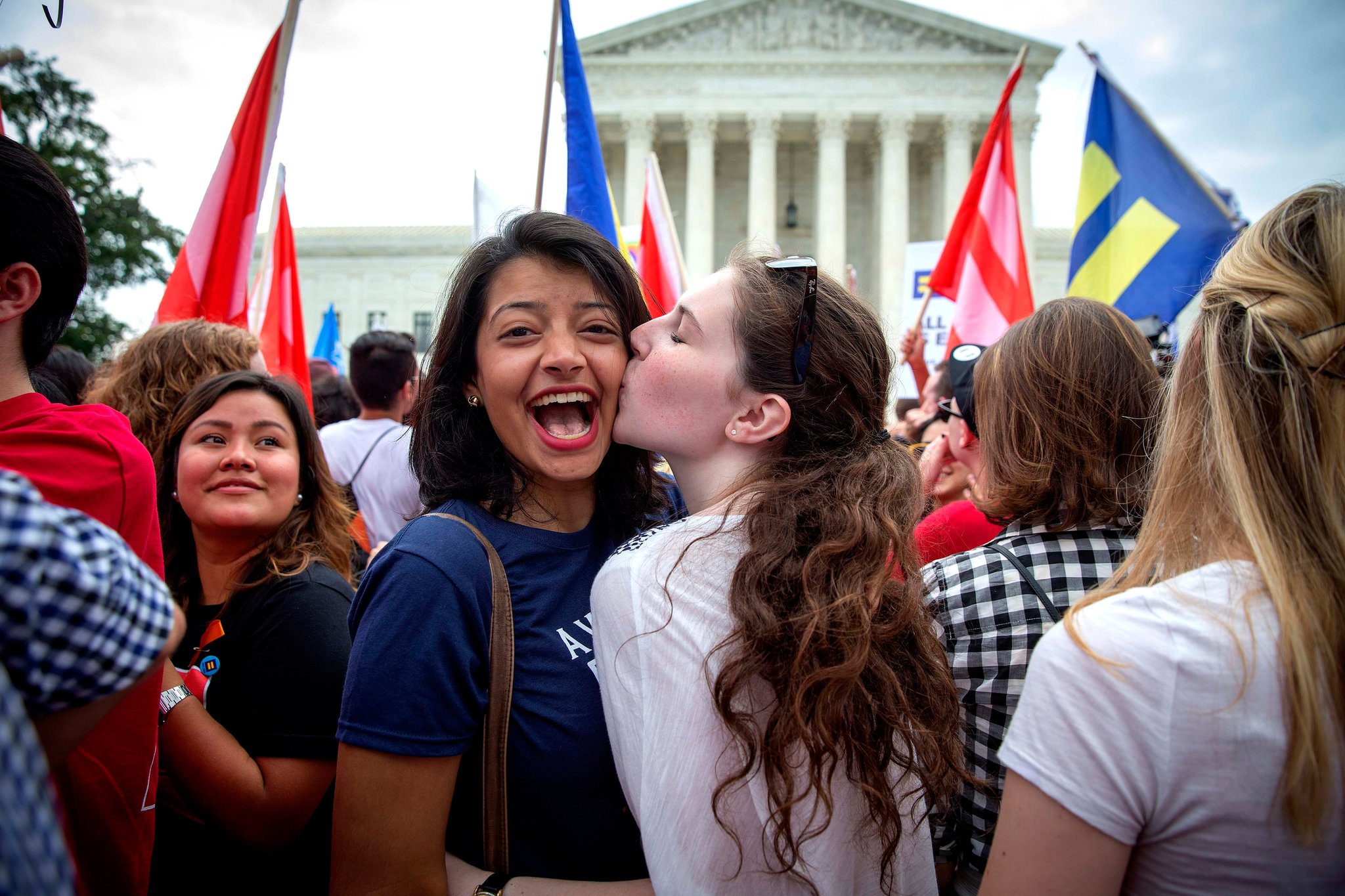Home
Historical ContextPrejudice & Discrimination
The Stonewall UprisingGay Liberation
Contact Hypothesis
Moving Forward
Resources

(James O'Neill, June 6, 2019, by Gabriela Bhaskar, The New York Times)
(CBS News, 2019, Youtube)
The activism sparked by the Stonewall Uprising helped break the social barriers around the LGBTQ community because it increased connections. People became more open-minded and culturally aware of individuals within the community. In the twenty-first century, many public figures voice their support for the LGBTQ community, with President Obama becoming the first US leader publicly to do so. Over time Americans realized that the discrimination they directed towards the gay community was immoral. The NYPD even issued an official apology for the Stonewall raid on its 50th anniversary.
"New York’s police commissioner took a step toward making amends, issuing an unusual official apology on behalf of the Police Department for the actions of officers during the Stonewall uprising.” (Gold and Norman, 2019)
"'The actions taken by the NYPD were wrong, plain and simple. The actions and the laws were discriminatory and oppressive, and for that, I apologize.'" (James O'Neill, 2019)
“He is not alone. We here at the Daily News played an unhelpful role in helping create a climate that treated the victims as the punchline of jokes, not as dignified individuals with legitimate complaints about mistreatment. For that, we apologize.” (New York Daily News, 2019)
Not only was the shift in public opinion a reason for the breaking of the social barriers, but laws have also changed to become more inclusive. The repeal of the DADT policy in 2011 officially allowed open gays within the military. Later in 2015, gay marriage also became legalized. The US Supreme Court ruled that the Constitution permitted rights to same-sex marriage. Justice Anthony M. Kennedy wrote, "No longer may this liberty be denied."

(Vin Testa, June 26, 2015, by Zach Gibson, The New York Times)

(Pooja Mandagere and Natalie ThompsonDoug, June 26, 2015, by Doug Mills, The New York Times)
"Outside the Supreme Court, the police allowed hundreds of people waving rainbow flags and holding signs to advance onto the court plaza as those present for the decision streamed down the steps. 'Love has won,' the crowd chanted as courtroom witnesses threw up their arms in victory." (Liptak, 2015)
"So this morning, I am proud to sign a law that will bring an end to 'Don't Ask, Don't Tell.' It is a law—this law I'm about to sign will strengthen our national security and uphold the ideals that our fighting men and women risk their lives to defend. No longer will our country be denied the service of thousands of patriotic Americans who were forced to leave the military—regardless of their skill, no matter their bravery or their zeal, no matter their years of exemplary experience—because they happen to be gay. No longer will tens of thousands of Americans in uniform be asked to live a lie, or look over their shoulder, in order to serve the country that they love." (Barack Obama, 2010)
"Today, America took a momentous step forward in the pursuit of full equality by fully repealing 'Don't Ask, Don't Tell' and opening its military to every brave man and woman willing to serve, whether straight or gay." (Mike Thompson GLAAD President, 2011)
It is evident now there is also more representation and acceptance of the LGBTQ community in mainstream media. Representation is now branching from musical acts to television to film. And many of these individuals and shows have become household names like Ellen DeGeneres, Lady Gaga, Sam Smith, Troye Sivan, Rupaul's Drag Race, and Orange Is the New Black, only to name a few.
"'All of this LGBTQ visibility [has] put queer representation at a new cultural peak. That can only be taken as a win'" (Staples, 2019)
“America is a work in progress, forever striving to become the more perfect Union promised in its founding document. To that end, we must acknowledge and correct cases where rigid traditions, petty cruelties or base fears have gotten the better of our better angels.” (New York Daily News, 2019)
The Stonewall Uprising has an everlasting impact on LGBTQ history. It initiated the activism and exposure that led to the breaking of the social barriers and inequalities society established against the LGBTQ community.